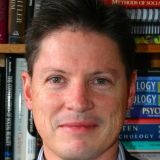
Professor Nick Haslam
School of Psychological Sciences, Faculty of Medicine, Dentistry and Health Sciences, University of Melbourne
See research profile
Health & Medicine
Overcoming our psychological barriers to embracing AI
A new study highlights the best ways of addressing barriers to adopting AI and the risks and benefits involved

Health & Medicine
Book extract
Knowing when to seek help for mental health
When challenges arise we may feel confused, but there are five signs to help us understand when to seek mental health support

Health & Medicine
Do we think about anxiety and depression differently now?
A new study investigates whether there’s been concept creep around how we use the terms ‘anxiety’ and ‘depression’

Arts & Culture
Mental Health ≠ Wellbeing
There’s a growing tendency to link mental health and wellbeing as an inseparable conceptual couple, but the two concepts have very different connotations

Health & Medicine
Is psychiatry shrinking what we think of as normal?
Concerns that normality is being medicalised by the inflation of psychiatric diagnosis criteria appear overblown – but some conditions do need scrutiny

Health & Medicine
Can your personality be good, or bad, for your health?
The HILDA 2019 Survey finds intriguing links between dominant personality traits and the onset of serious illness – but it’s more likely to do with the behaviours linked to those traits

Health & Medicine
Is Freud’s legacy fading?
Despite reports of the demise of psychoanalysis, in some parts of the world, Freud’s psychoanalytic ideas are alive and well

Business & Economics
Treating depression to economically empower mothers
How a simple talking therapy empowers women with perinatal depression to make better economic decisions

Business & Economics
The grim cycle of homelessness and unemployment
For many homeless people, the problem isn’t finding a job, it’s keeping it
